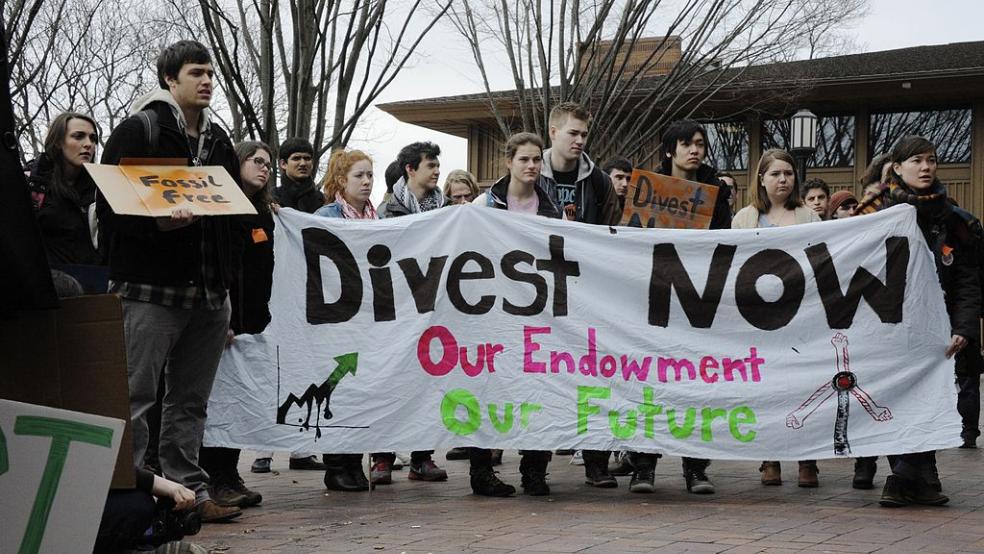It wasn’t James Comey that torpedoed Hillary Clinton’s presidential bid. It wasn’t Jeremy Corbyn who upset Teresa May. It wasn’t fed-up workers who gave the National Front their best-ever showing in recent French elections. It was the children, or, more respectfully, Millennials and Gen Z. Young people who are suddenly deciding elections around the world, and upsetting the applecart.
Millions of Millennials became Bernie’s “army” and turned their backs on the “inevitable” Hillary Clinton, viewing her as the voice of the establishment.
Millennials denied UK Conservatives a bigger majority and voted in unexpected numbers. Teresa May’s party won only 18 percent of those 18-24, and 22 percent of the 25-34, with Labor attracting 66 percent and 57 percent of those cohorts respectively.
Related: Millennial Women Are Surging Ahead of Men in the Job Market
The bad news for the U.S. – and for other countries too -- is that the newest crop of voters has been steeped in progressive culture and tutored by the liberal media. They are easy prey for those making big and undeliverable promises, like free college or free healthcare, or free windmills that can save the planet. Having not learned the lessons of history, they (and we) are doomed to repeat them. They must learn all over again how left-wing policies fail to spur growth and incomes, undermine the economy and leave working people behind.
They have been educated by left-wing faculties to admire the Socialism preached by Labor’s Corbyn and to ignore the failures of Socialist measures enacted in France and England. They don’t remember the UK as a nation crippled by exorbitant taxes and militant unions, finally revived by the conservative policies of Margaret Thatcher. Where would they have heard that? Popular culture in the UK derides Thatcher as an Iron Lady who stepped on the poor and devolved into dementia. Professors teach more of the same. A recent study showed that 8 in 10 university lecturers in the UK are liberals; who is surprised that the new generation demonstrates such a profound ignorance of capitalism and fiscal realities?
Why is this important? Historically, our laissez-faire attitude towards such liberal indoctrination of our youth didn’t much matter. Boomers have outnumbered other generations and have dominated our politics. Today that is no longer the case. In 2016, Pew Research determined that Millennials and Boomers were tied, each claiming 31 percent of the electorate. Up until now, that evolving parity has not meant much, because turnout among young people was consistently low. That is changing.
Related: Why Princeton University Has to Change Its Name
In the U.S., Republicans need to wise up to the lessons of the recent elections. The first is that Millennials are fickle. They can show up to vote in one election and then ignore the next. That’s what happened in France, where young voters, frustrated by 22 percent unemployment and fed up with establishment parties, gave LePen a surprising lift in the presidential voting on May 7, only to boycott the more recent parliamentary contests. Less than half the country turned out this past weekend to cast a ballot – a sharp fall-off from prehistorical figures approaching 60 percent or higher.
The second lesson is that young people are motivated by pretty much the same issues – jobs, higher incomes -- that concern older voters. Young people in the UK were not a big factor in the 2016 Brexit vote, probably convinced that established voters would win the day; a year later they were energized by a sinking pound sterling and media reports of pending job losses and higher inflation. They subsequently flocked to the voting booth to register their anxieties about leaving the EU. Turnout among young people (age 18 to 24) rose 12 percentage points compared to the 2015 general election.
Republicans looking to the 2018 Congressional contests should be worried. Polling has shown Millennials defecting to Democrats and Trump’s approval ratings with 18 to 34-year-olds at only 26 percent. Today, he would certainly not attract young voters to support Congressional candidates.
The White House’s withdrawal from the Paris Climate Agreement and hard stance on immigration do not sit well with Millennials. In college, they never heard the counter-arguments, about the cost of renewable energy or the deflating effect of immigration on wages. Our colleges discourage right-wing commentary or even open discourse. Baby boomers have let this happen, and now the country is reaping the rewards.
Related: How Millions of Aging Baby Boomers Could Bust the Economy
Still, Millennials can change their minds, as we have seen. The GOP needs to craft a message that will appeal to young voters, and fast.
One message is that the Republican Party is the party of opportunity, encouraging entrepreneurship and backing companies like Uber and Airbnb, the disruptors of the status quo. As important, the GOP needs to portray Democrats as standing in the way of new ventures, with their thirst for regulation and obeisance to labor unions.
Another is that the GOP will aggressively open more doors for young people, including the new apprenticeship programs and collaborations with industry that President Trump has recently promoted. An astounding number of young people, especially minorities living in urban areas, have little knowledge of how to access a middle-class life, and what it might mean for them.
Republicans can also promote making government more efficient and effective, in part through the greater use of technology. The president is planning another get-together with tech titans like Jeff Bezos and Eric Schmidt in the coming week focused on modernizing government. A tech revolution might appeal to Millennials almost as much as one led by Bernie.
Bottom line: GOP candidates need to woo young audiences, maybe for the first time ever. That is in itself a revolution.



